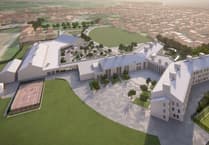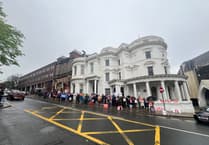A large majority of MHKs have asked fewer than 10 oral questions across the sittings in this parliamentary year.
In figures released by the Tynwald website’s research section, 12 MHKs tabled fewer than nine questions this last year.
Meanwhile, the top contributors to proceedings were Arbory, Castletown and Malew MHK Jason Moorhouse who asked 92, which represents 43% of questions asked.
Infrastructure Minister Chris Thomas asked 26 questions, a 12% contribution, while Douglas North MHK David Ashford asked 18, which is eight percent.
Since the general election in September 2021, there have been 41 sittings of the House of Keys and 22 Tynwald sittings, with over 200 questions being tabled.
In this parliamentary year, there has been 63 sittings.
Mr Moorhouse stated that all backbenchers had asked at least one question.
However, ministers Clare Barber, Tim Johnston, Lawrie Hooper, Kate Lord-Brennan, Jane Poole-Wilson, Julie Edge and Alex Allinson, as well as Chief Minister Alfred Cannan, didn’t ask any.
MHKs Andrew Smith and Tim Crookall both asked one question each across the year.
It should be noted that these do not include written questions, which members can submit on the Tynwald website and are still answered publicly.
Mr Moorhouse said: ‘Having the opportunity to table a parliamentary question is a huge privilege.
‘Two of the three most prolific questioners have held ministerial posts in the current government.
‘It is just 12 months since Chris Thomas became a minister so in eight months he tabled 26 questions, since resigning as a minister in May 2022 David Ashford has tabled 18 questions.
restrictions
‘The island’s parliament is unique in that there are very few restrictions on what can be asked and how many questions can be asked.
‘This ensures that backbenchers have the opportunity to seek answers from ministers on the areas which they take responsibility for.’
Last month in Tynwald, standing orders were reviewed and, as Mr Moorhouse puts it, ‘change could have been significant’.
‘Fortunately, the most radical change was the introduction of star questions,’ he said. ‘The Chief Minister bought an amendment, suggesting that the maximum number of questions that could be tabled, should be reduced to four.
‘As a backbencher, I raised concerns about the suggestion and fortunately that vote was lost.’
He said the claim that since the general election ‘large numbers of oral questions in the House of Keys and Tynwald have been tabled by a small number of members’ and ‘members who have tabled questions infrequently have been frustrated to find on some occasions that their questions have not been reached’ was ‘inaccurate’.
Mr Moorhouse added: ‘Even one of the committee members said it wasn’t true in his speech!
‘Since, the last general election all oral questions have been answered with the exception of one which Mr Glover withdrew.
‘Every question that is tabled will be scrutinised and prior to a question being asked, a lot of work is done and conversations will take place with many people.’
The MHK explained that one criticism he often receives is that ‘a question costs money to answer’.
‘That’s true, but from my perspective in a democracy questions play a key role and considering there have been 63 sittings since the last general election the number of questions I have tabled does not look excessive,’ he said.
‘The privileged individuals who have key responsibility in the departments in which questions are directed, should in my opinion also have a similar mastery of the area which they are responsible for.
‘If it is taking undue time, cost and energy to produce any of these answers something has clearly gone wrong – that must be considered.’
He continued: ‘Occasionally, I do receive some criticism for a question that I am asking, usually because one particular aspect is taken out of context, but every question that I have asked had been asked for a specific reason and where correspondence with the department has not progressed as well as it could have done.
‘There is also a fundamental issue with the email response, when they arrive… there can be restrictions on what can be done with the materials.
‘One of the key advantages of a parliamentary question is that it has the potential to open up a valuable public debate about a topic.
‘This is something which I encourage.’





Comments
This article has no comments yet. Be the first to leave a comment.